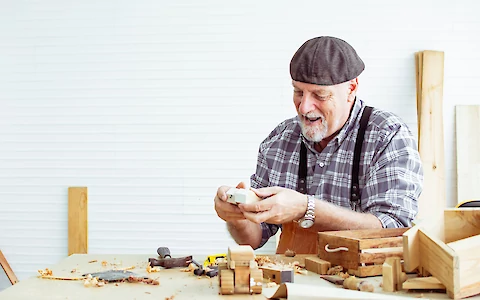
As we journey through life, hobbies often serve as a comforting constant, a source of relaxation and enjoyment, and an avenue for learning. Their value increases as we age, becoming an effective way to keep the mind and body active. Even former presidents benefit from this. Many U.S. presidents have found new passions after leaving office, such as woodcarving, painting, gardening, and writing. These hobbies not only allowed them to explore personal interests but also provided numerous benefits for their overall well-being.
President Jimmy Carter: Woodcarving
Jimmy Carter, the 39th president, is known for his quiet grace and humanitarian efforts. After leaving office, one hobby Carter picked that might surprise you is woodcarving. His appreciation for woodwork grew from a young age and continued into retirement. Woodcarving is enjoyable and beneficial for seniors as it helps refine motor skills, promotes focus, and offers a creative outlet.
President George W. Bush: Painting
George W. Bush, the 43rd president, has become an avid painter since leaving the White House. He started painting as a way to fill his time and soon became passionate about it. His work ranges from portraits of world leaders to landscapes and his pets. Painting is an excellent hobby for seniors as it encourages creativity, relieves stress, and improves memory and concentration.
President Dwight D. Eisenhower: Golfing
Dwight D. Eisenhower, the 34th president, was a passionate golfer. He often played during his presidency and continued playing in his retirement. Golf is not just about sport, it's a social activity that provides both physical exercise and mental stimulation. For seniors, golfing can offer significant health benefits such as improving flexibility and strength while providing social interaction, a vital aspect in maintaining emotional well-being in golden years.
President Thomas Jefferson: Gardening
Thomas Jefferson, the third U.S. President, was not just a statesman but also an ardent horticulturist. Jefferson loved to garden and spent much of his post-presidential years tending to his extensive gardens at Monticello, his plantation home in Virginia. Gardening offers seniors a way to remain physically active, reduces stress levels, and fosters a sense of accomplishment when seeing the fruits of their labor.
President Richard Nixon: Writing
Our 37th president, Richard Nixon, turned to writing after his political career. Nixon wrote multiple books reflecting on his experiences in office and his views on international relations. Writing provides numerous cognitive benefits for seniors, such as mental stimulation and improved memory and communication skills, and offers a powerful way to share wisdom and experiences.
These are just a few examples of how former U.S. presidents have stayed active and engaged after they retired from politics. They remind us that age is no barrier to learning new skills or pursuing passions. These hobbies, like woodcarving, painting, golfing, gardening, and writing, provide numerous benefits for seniors, keeping them active physically, mentally, and socially.
Stay Active and Pursue Your Passions
If you live in Plainfield, Bridgewater, Edison, Basking Ridge, or Somerset and are looking for assistance for an elderly loved one, contact us at Senior Helpers Somerset. We're committed to enriching the lives of seniors in our community by providing quality services, promoting independent living, and fostering meaningful relationships. Inspired by the hobbies of our former presidents, why not start a new hobby or revisit an old one today?